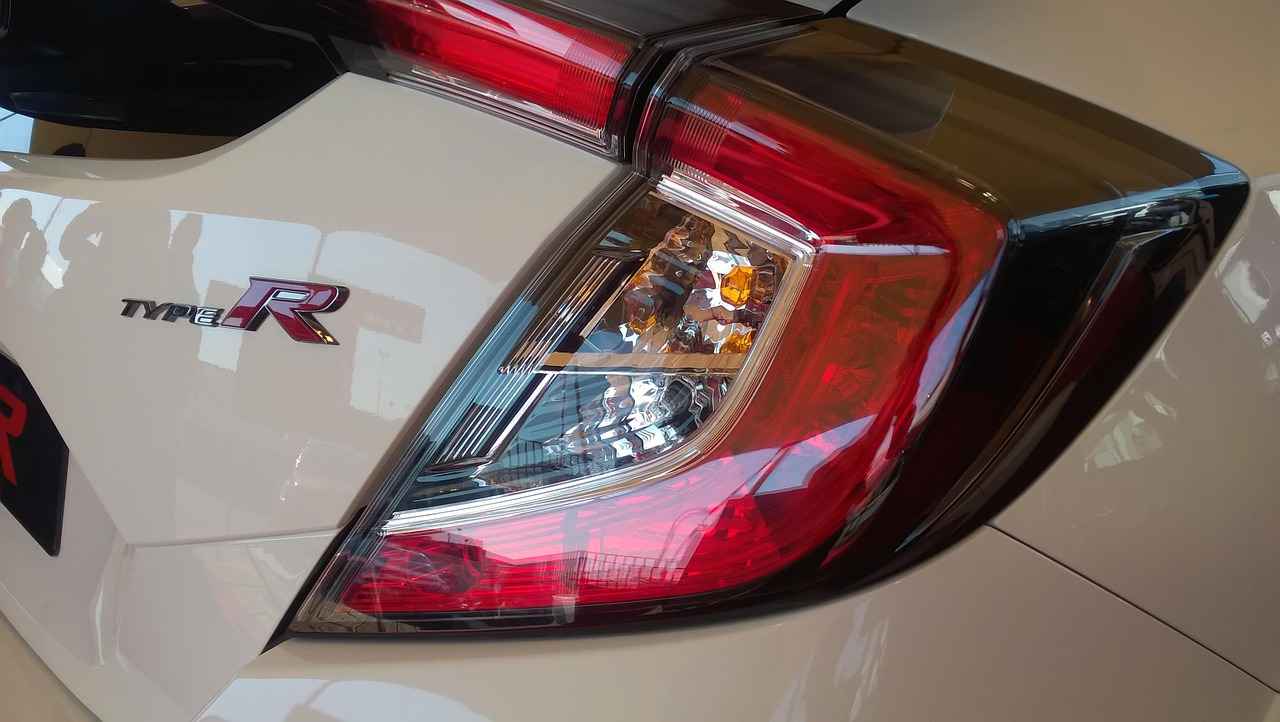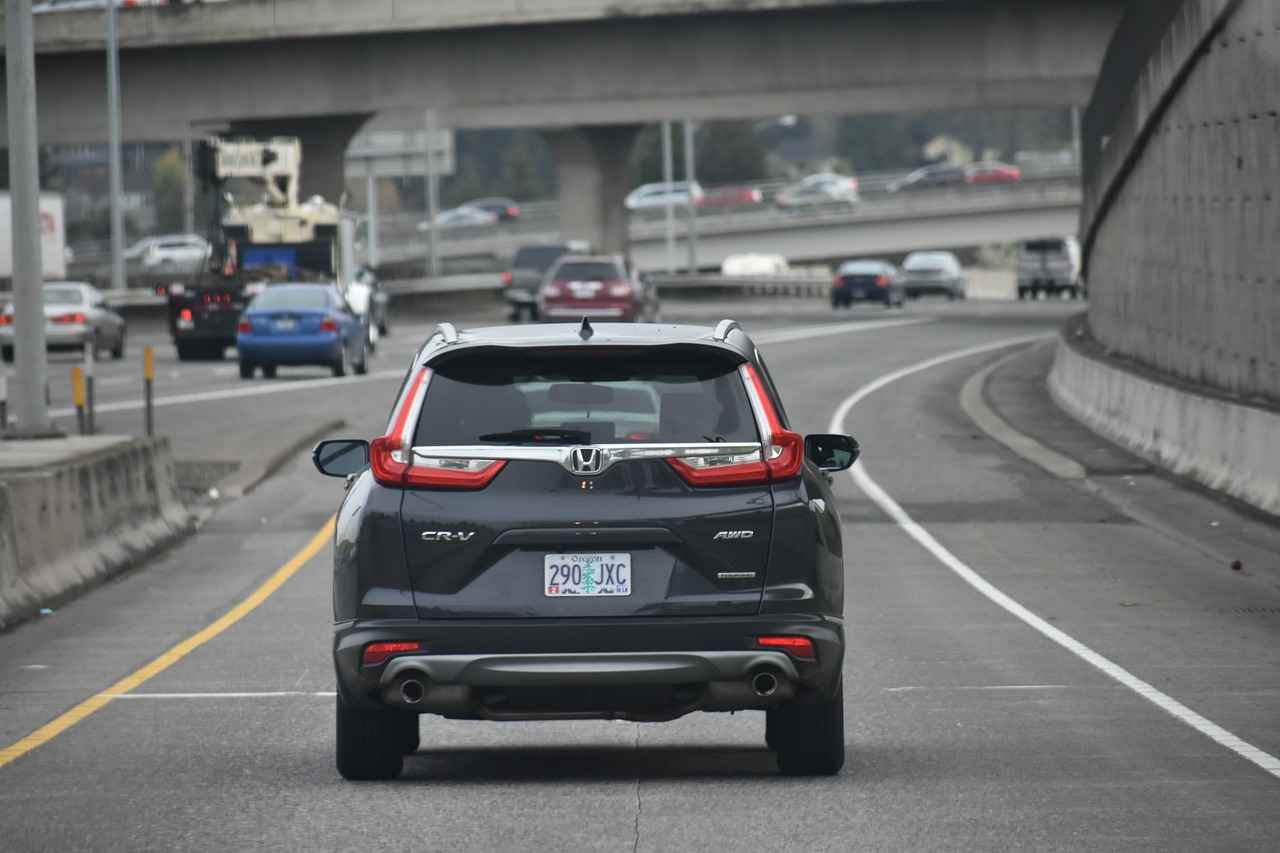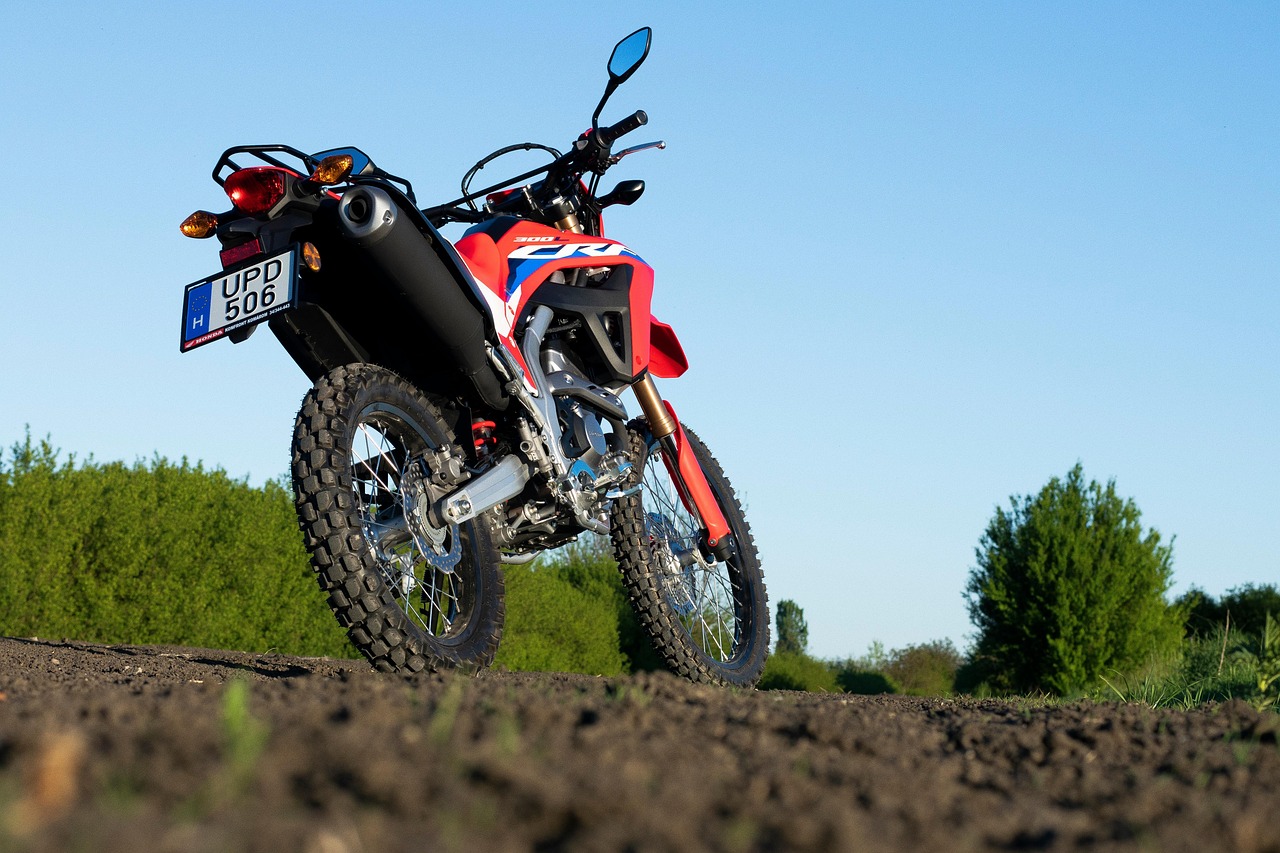The Honda Accord is a well-regarded vehicle known for its reliability, comfort, and performance. When considering a purchase, many buyers are curious about the drivetrain options available, particularly the presence of four-wheel drive (4WD). This article explores the features, benefits, and considerations of the Honda Accord’s drivetrain options, with a particular focus on 4WD and its implications for drivers.
Four-wheel drive (4WD) refers to a system that allows all four wheels of a vehicle to receive power from the engine simultaneously. This technology is particularly beneficial for enhancing traction and stability on challenging terrains and adverse weather conditions. Understanding how 4WD operates is crucial for evaluating its benefits in vehicles like the Honda Accord.
Many potential buyers ask, “Does the Honda Accord come with four-wheel drive capabilities?” Traditionally, the Honda Accord has been equipped with front-wheel drive (FWD), which is sufficient for most driving conditions. However, the absence of 4WD means that drivers may need to consider their typical driving environments and conditions before making a decision.
While the Honda Accord primarily offers FWD, the benefits of having a 4WD system include:
- Improved Traction: 4WD helps maintain grip on slippery surfaces, such as snow or mud.
- Enhanced Stability: Distributing power to all four wheels can provide better handling during sharp turns.
- Performance in Adverse Conditions: 4WD can be a game-changer in off-road scenarios or during inclement weather.
Understanding the differences between front-wheel drive and four-wheel drive can help buyers make informed decisions. The Honda Accord is engineered primarily for urban driving, where FWD offers superior fuel efficiency and handling. However, for those who frequently encounter rough terrains or harsh weather, exploring options with 4WD may be beneficial.
Fuel efficiency is a significant consideration for many drivers. Typically, four-wheel drive systems can lead to increased fuel consumption due to the additional weight and complexity of the drivetrain. For drivers who prioritize fuel economy, the Honda Accord’s FWD may be the more suitable choice.
It is essential to distinguish between 4WD and all-wheel drive (AWD). While both systems enhance traction, 4WD is generally designed for off-road conditions and can be manually engaged, whereas AWD operates automatically. Understanding these distinctions can clarify which option best suits your driving needs.
Evaluating how the Honda Accord performs in off-road situations is crucial for potential buyers. Without a dedicated 4WD system, the Accord may struggle in rugged terrains. However, its FWD system is designed to handle light off-road conditions effectively, making it suitable for most casual drivers.
Safety is paramount for any vehicle. The Honda Accord incorporates various safety features that complement its drivetrain options, including stability control systems that enhance handling during challenging driving conditions. These features help ensure that drivers maintain control, regardless of whether they are using FWD or another drivetrain type.
Gathering insights from current Honda Accord owners can provide valuable perspectives on the vehicle’s performance, reliability, and overall satisfaction. Many owners appreciate the Accord’s balance of comfort and performance, particularly in urban settings, where its FWD excels.
As technology evolves, the Honda Accord may see advancements in its drivetrain options, including the potential for hybrid or fully electric models with four-wheel drive capabilities. These innovations could provide drivers with enhanced efficiency and performance.
In summary, the Honda Accord primarily offers FWD, which is ideal for most driving conditions. While 4WD is not a standard feature, understanding its implications can help buyers make informed decisions about their vehicle preferences. Whether prioritizing fuel efficiency or considering occasional off-road capabilities, the Honda Accord remains a versatile choice for various drivers.

What is Four-Wheel Drive (4WD)?
Four-Wheel Drive (4WD) is a drivetrain system that provides power to all four wheels of a vehicle simultaneously, enhancing traction and control on various terrains. Understanding the basic mechanics and purpose of 4WD systems is crucial for evaluating their benefits, particularly in vehicles like the Honda Accord.
At its core, 4WD is designed to improve a vehicle’s capability in challenging driving conditions. By distributing power evenly to all four wheels, 4WD systems can significantly enhance grip on slippery surfaces such as snow, mud, or gravel. This is especially beneficial for drivers who frequently navigate through adverse weather or rugged landscapes.
There are generally two types of four-wheel drive systems: full-time 4WD and part-time 4WD. Full-time systems provide constant power to all wheels, ensuring maximum traction at all times. In contrast, part-time systems allow the driver to switch between two-wheel drive and four-wheel drive, offering flexibility based on the driving conditions. This adaptability can be particularly useful for urban drivers who may not require 4WD in everyday conditions but want the option for off-road excursions.
One of the main advantages of 4WD is its ability to enhance vehicle stability. When all four wheels are engaged, the vehicle is less likely to lose traction during sudden maneuvers or when cornering. This stability can provide a sense of confidence for drivers, especially when navigating through difficult terrains or inclement weather.
Additionally, 4WD systems often come equipped with advanced technologies, such as traction control and electronic stability control, which further aid in maintaining control. These features can automatically adjust power distribution based on real-time conditions, ensuring optimal performance in various scenarios.
For potential buyers of the Honda Accord, understanding how 4WD integrates with the vehicle’s overall performance is essential. While traditionally known for its front-wheel-drive configuration, the availability of 4WD can influence the driving experience, particularly for those who prioritize versatility and capability in their vehicles.
In summary, four-wheel drive systems offer significant benefits, including improved traction, stability, and adaptability to different driving conditions. By comprehending the mechanics and advantages of 4WD, drivers can make informed decisions that align with their needs and preferences.

Does the Honda Accord Offer 4WD?
The Honda Accord is a popular choice among sedan enthusiasts, known for its reliability, comfort, and performance. One of the most frequently asked questions by potential buyers is whether the Honda Accord offers four-wheel drive (4WD) capabilities. This feature can significantly influence a vehicle’s performance and handling, especially in challenging driving conditions. Understanding the drivetrain options available for the Honda Accord is essential for making an informed decision.
Four-wheel drive (4WD) is a system that allows all four wheels of a vehicle to receive power from the engine simultaneously. This capability enhances traction, stability, and overall control, particularly when driving on slippery or uneven surfaces. While 4WD is often associated with off-road vehicles, its benefits can also be advantageous in everyday driving situations, such as during inclement weather.
Many potential buyers wonder if the Honda Accord comes equipped with four-wheel drive. However, the standard configuration of the Honda Accord is front-wheel drive (FWD). This drivetrain setup is designed to provide excellent fuel efficiency and handling characteristics suited for urban and highway driving. While some models in Honda’s lineup, such as the CR-V and Pilot, do offer 4WD capabilities, the Accord remains primarily a front-wheel drive vehicle.
Though the Honda Accord does not offer 4WD, understanding the benefits of such a system can help buyers appreciate the advantages of FWD. The primary benefits of 4WD include:
- Improved Traction: 4WD systems distribute power to all wheels, enhancing grip on slippery surfaces.
- Stability: A balanced power distribution helps maintain stability during cornering and sudden maneuvers.
- Performance: 4WD can improve performance in off-road and rugged conditions, which is essential for adventure seekers.
The Honda Accord’s front-wheel drive system is designed to optimize fuel efficiency while providing a comfortable ride. This configuration allows for a lighter vehicle, which can translate to better gas mileage compared to heavier 4WD systems. Additionally, FWD vehicles tend to have a more straightforward design, resulting in lower maintenance costs.
Fuel efficiency is a significant consideration for many drivers. Generally, vehicles equipped with 4WD tend to consume more fuel due to the added weight and complexity of the drivetrain. In contrast, the Honda Accord’s FWD system offers better fuel economy, making it an attractive option for those who prioritize cost-effective driving.
While both 4WD and all-wheel drive (AWD) enhance traction, they serve different purposes. 4WD is typically used for off-road driving and can be engaged or disengaged as needed, while AWD is designed for on-road use and operates automatically. Understanding these distinctions can help buyers choose the right vehicle for their driving needs.
Although the Honda Accord is not designed for off-road use, it can still handle light adverse conditions due to its robust construction and reliable performance. Drivers can expect satisfactory handling on well-maintained gravel roads and during light snowfalls, but for serious off-road adventures, a vehicle with 4WD would be more suitable.
Safety is paramount for any vehicle. The Honda Accord is equipped with various safety features, including stability control and anti-lock braking systems, which enhance its handling and stability. These features work in conjunction with the FWD system to provide a safe driving experience, even in less-than-ideal conditions.
Current owners of the Honda Accord often praise its reliability, comfort, and fuel efficiency. Many appreciate the handling characteristics of the FWD system, particularly in urban environments. However, some have expressed a desire for 4WD options, especially those living in areas with harsh winter conditions.
As automotive technology evolves, there is potential for future Honda Accord models to explore hybrid or fully electric drivetrains, possibly incorporating 4WD capabilities. This shift could cater to a broader range of consumer needs, balancing efficiency with performance.

Benefits of 4WD in the Honda Accord
The Honda Accord has long been a popular choice among drivers for its reliability, comfort, and performance. One feature that is often discussed is the four-wheel drive (4WD) system. While traditionally associated with rugged SUVs and off-road vehicles, the inclusion of 4WD in sedans like the Accord offers a unique set of advantages, especially in challenging driving conditions. Let’s explore the in detail.
One of the primary advantages of having a four-wheel drive system is the enhanced traction it provides. In situations such as rain, snow, or icy roads, a 4WD system distributes power to all four wheels, allowing for better grip and control. This is particularly beneficial for drivers living in regions with harsh weather conditions, as it significantly reduces the risk of slipping and sliding.
With a four-wheel drive system, the Honda Accord can maintain better stability during cornering and maneuvering. The power being sent to all four wheels helps to keep the vehicle grounded, which is essential when navigating sharp turns or sudden changes in direction. This stability not only improves driver confidence but also enhances passenger safety.
While the Honda Accord is primarily designed for on-road driving, the availability of a 4WD system allows it to perform admirably on varied terrains. Whether it’s a gravel road, a muddy path, or a steep incline, 4WD enhances the vehicle’s ability to tackle these challenges with ease. This versatility makes the Accord a suitable choice for those who enjoy weekend getaways or outdoor adventures.
Vehicles equipped with four-wheel drive often hold their value better than those without. As demand for versatile vehicles continues to rise, a Honda Accord with 4WD may attract more potential buyers in the used car market. This can translate into a higher resale value, making it a smart investment for the future.
In addition to the benefits of 4WD, the Honda Accord is equipped with advanced safety features that work in tandem with the drivetrain. Systems like stability control and anti-lock brakes further enhance the vehicle’s performance in adverse conditions, ensuring that drivers can navigate safely regardless of the weather.
In summary, the four-wheel drive system in the Honda Accord offers a multitude of benefits, from improved traction and stability to enhanced performance in various terrains. For drivers seeking a reliable sedan that can handle adverse weather conditions and provide peace of mind, the Accord with 4WD is an excellent choice. As automotive technology continues to evolve, the advantages of 4WD in vehicles like the Honda Accord will only become more pronounced, making it a feature worth considering for any prospective buyer.

Honda Accord’s Drivetrain Options Explained
The Honda Accord is a popular choice among drivers for its reliability, comfort, and impressive performance. One of the key aspects that potential buyers often consider is the vehicle’s drivetrain options. Understanding these options, particularly the differences between front-wheel drive (FWD) and four-wheel drive (4WD), is crucial for making an informed decision.
Front-wheel drive is a configuration where the engine’s power is directed to the front wheels. This setup is common in many sedans, including the Honda Accord. FWD vehicles tend to offer better fuel efficiency and are generally lighter, which can enhance acceleration and handling on paved roads.
Four-wheel drive, on the other hand, allows all four wheels to receive power from the engine simultaneously. This system is designed for improved traction and stability, especially in off-road or challenging weather conditions. While traditionally found in SUVs and trucks, some sedans are beginning to incorporate this technology.
Many potential buyers of the Honda Accord often ask, “Does the Honda Accord come with 4WD?” The answer is no; the Honda Accord is primarily offered with a front-wheel drive system. This design choice is intentional, as it caters to the needs of most drivers who prioritize fuel efficiency and everyday usability over off-road capability.
- Improved Traction: 4WD systems provide enhanced grip on slippery surfaces, making them ideal for adverse weather conditions.
- Stability: With power distributed to all four wheels, vehicles with 4WD often feel more stable during turns and on uneven terrain.
- Off-Road Capability: 4WD is essential for navigating tough terrains, providing the necessary power to tackle obstacles.
It is important to consider that while 4WD offers numerous advantages, it often comes at the cost of fuel efficiency. Vehicles equipped with 4WD systems typically consume more fuel than their FWD counterparts due to the added weight and complexity of the drivetrain. For drivers who prioritize fuel economy, the Honda Accord’s FWD system is a more efficient choice.
Another common question is the difference between 4WD and all-wheel drive (AWD). While both systems enhance traction, they serve different purposes. 4WD is often manually engaged and is designed for rugged terrain, while AWD is usually automatic and optimized for on-road performance.
Despite lacking a dedicated 4WD system, the Honda Accord performs admirably in various driving conditions. Its FWD configuration provides adequate traction on wet or snowy roads, making it a reliable choice for daily commuting.
Safety is a top priority for Honda, and the Accord is equipped with advanced safety features that complement its drivetrain. This includes stability control systems that enhance handling during adverse conditions, ensuring that drivers feel secure behind the wheel.
Insights from current Honda Accord owners reveal that many appreciate the vehicle’s handling and reliability. Reviews often highlight the Accord’s performance in everyday driving scenarios, emphasizing its suitability for city and highway travel.
As automotive technology evolves, there is potential for Honda to explore hybrid or fully electric models with 4WD capabilities. This could enhance the Accord’s appeal by combining fuel efficiency with the benefits of four-wheel drive.
In summary, while the Honda Accord does not offer a 4WD option, its front-wheel drive system provides a balance of efficiency and performance that meets the needs of most drivers. Understanding these drivetrain options can help potential buyers make the best choice for their driving needs.

How Does 4WD Affect Fuel Efficiency?
Understanding fuel efficiency is crucial for drivers today, especially those considering the Honda Accord. In this section, we will delve into how a four-wheel drive (4WD) system can influence the vehicle’s fuel consumption, addressing common concerns and misconceptions.
The Honda Accord is primarily known for its front-wheel drive (FWD) configuration, which generally offers better fuel efficiency compared to 4WD systems. However, many drivers are curious about the implications of having 4WD, particularly in terms of fuel economy. A 4WD system can provide enhanced traction and stability, especially in adverse weather conditions, but it often comes at the cost of increased fuel consumption.
When evaluating the impact of 4WD on fuel efficiency, it’s essential to consider several factors:
- Weight: Vehicles equipped with 4WD systems typically weigh more due to additional components such as transfer cases and differentials. This extra weight can lead to decreased fuel efficiency as the engine works harder to move the vehicle.
- Power Distribution: In a 4WD system, power is distributed to all four wheels, which can improve traction but also requires more energy. This additional energy consumption can result in lower miles per gallon (MPG) ratings.
- Driving Conditions: The benefits of 4WD are most noticeable in challenging driving conditions, such as snow, mud, or off-road terrains. In these scenarios, the enhanced traction can outweigh the drawbacks in fuel efficiency.
To illustrate the fuel consumption differences, let’s compare the Honda Accord’s FWD and a hypothetical 4WD variant:
| Drivetrain Type | City MPG | Highway MPG |
|---|---|---|
| Front-Wheel Drive | 30 | 38 |
| Four-Wheel Drive | 25 | 32 |
As shown in the table, the FWD Honda Accord offers significantly better fuel efficiency compared to a 4WD variant. This difference can be attributed to the factors mentioned earlier, particularly the added weight and power distribution.
It’s also important to note that modern advancements in engine technology and fuel management systems are helping to mitigate some of the fuel efficiency drawbacks associated with 4WD. Many manufacturers are developing systems that can automatically switch between 2WD and 4WD, optimizing fuel consumption based on driving conditions.
In conclusion, while a 4WD system in the Honda Accord may enhance traction and stability, it generally results in lower fuel efficiency compared to its FWD counterpart. Drivers should weigh the benefits of improved handling in adverse conditions against the potential increase in fuel costs. Ultimately, understanding these aspects will help potential buyers make informed decisions regarding their vehicle needs.

Comparing 4WD and All-Wheel Drive (AWD)
When it comes to enhancing vehicle traction, Four-Wheel Drive (4WD) and All-Wheel Drive (AWD) are two popular systems that serve distinct purposes. Understanding the differences between these systems is crucial for drivers seeking to optimize their vehicle’s performance under various conditions.
Four-Wheel Drive (4WD) is a drivetrain system designed to distribute power to all four wheels of a vehicle, providing superior traction on challenging terrains. Typically found in trucks and SUVs, 4WD is ideal for off-road adventures, as it allows for better handling on uneven surfaces, mud, and snow. This system often features low-range gearing, which enhances torque and control when navigating steep inclines or rough paths.
All-Wheel Drive (AWD), on the other hand, is engineered for on-road use, automatically distributing power between the front and rear wheels as needed. This system is particularly beneficial in adverse weather conditions, such as rain or light snow, where maintaining traction is essential. Unlike 4WD, AWD does not typically include low-range gearing, making it less suited for extreme off-road driving.
- Control: 4WD often requires manual engagement, allowing drivers to switch between 2WD and 4WD modes, whereas AWD operates automatically.
- Terrain Capability: 4WD excels in off-road situations, while AWD is optimized for on-road stability and traction.
- Complexity: 4WD systems tend to be more complex and heavier, which can impact fuel efficiency, while AWD systems are generally lighter and more fuel-efficient.
Choosing between 4WD and AWD depends largely on your driving habits and conditions. If you frequently encounter rugged terrains or plan to engage in off-road activities, 4WD may be the better choice. Conversely, if you primarily drive on paved roads and occasionally face inclement weather, AWD provides the traction you need without the added complexity of a 4WD system.
In snowy or icy conditions, both systems enhance traction, but AWD is typically more effective in maintaining stability and control. For example, vehicles equipped with AWD can automatically adjust power to the wheels that need it most, enhancing safety during sudden weather changes. In contrast, 4WD vehicles might require driver intervention to switch modes, which could be a disadvantage in emergency situations.
Another important factor to consider is fuel efficiency. Generally, AWD systems are designed to be more fuel-efficient compared to 4WD systems, which can consume more fuel due to their heavier components and additional drivetrain complexity. If fuel economy is a priority for you, especially in urban driving scenarios, opting for an AWD vehicle might be more beneficial.
Both 4WD and AWD technologies continue to evolve, with advancements aimed at improving performance and efficiency. Innovations such as electronic control systems and variable torque distribution are enhancing the capabilities of both drivetrain types, making them more adaptable to various driving conditions.
In conclusion, while both 4WD and AWD systems enhance traction, understanding their distinct characteristics can help clarify which option best suits your driving needs. Whether you prioritize off-road capability or on-road stability, making an informed decision will ensure that your vehicle meets your expectations and driving lifestyle.

Performance of the Honda Accord in Off-Road Conditions
The Honda Accord is widely recognized for its reliability and comfort on paved roads, but how does it fare in off-road conditions? This performance evaluation will delve into the Accord’s traction and handling capabilities, particularly in scenarios where a dedicated four-wheel drive (4WD) system is absent.
While the Honda Accord is primarily designed as a front-wheel drive sedan, it is essential to understand how it performs in less-than-ideal conditions. The Accord’s suspension system and overall build quality play a significant role in its ability to navigate uneven surfaces. Although it lacks a 4WD system, the Accord can still tackle light off-road challenges.
One of the most critical aspects of off-road performance is traction. The Honda Accord is equipped with advanced traction control systems that help maintain grip on slippery or loose surfaces. This can be particularly beneficial when driving on wet grass, gravel, or even snow. However, it is important to note that the Accord’s performance diminishes significantly on steep inclines or rugged terrain.
When it comes to handling, the Honda Accord boasts a well-tuned suspension system that provides a smooth ride on paved roads. This same system can aid in handling minor off-road obstacles, but drivers should exercise caution. The Accord’s ground clearance is lower than that of traditional SUVs, making it susceptible to undercarriage damage on rough trails.
- Light Trails: Many owners have reported satisfactory performance on light trails, such as dirt roads or forest paths.
- Weather Challenges: The Accord performs decently in rain or light snow, thanks to its traction control.
- Limitations: Users have noted that while the Accord can handle some rough patches, it is not suitable for serious off-roading, such as rock crawling or deep mud.
Compared to vehicles equipped with a dedicated 4WD system, the Honda Accord falls short in off-road capabilities. 4WD vehicles are designed to distribute power to all four wheels, enhancing traction and control on challenging surfaces. In contrast, the Accord’s front-wheel drive system may struggle in more demanding off-road situations.
In summary, while the Honda Accord can handle light off-road conditions due to its advanced traction control and suspension system, it is not designed for serious off-road adventures. Drivers seeking a vehicle that can confidently traverse rugged terrain should consider options with dedicated 4WD systems. However, for those who occasionally venture off the beaten path, the Honda Accord remains a reliable choice for urban and suburban driving with the capability to handle light off-road scenarios.

Safety Features in the Honda Accord
The Honda Accord is renowned not just for its performance and reliability, but also for its commitment to safety. In today’s automotive landscape, where safety is a top priority for consumers, the Accord stands out with its advanced safety features that work in harmony with its drivetrain options. This section delves into how the Honda Accord’s safety features complement its drivetrain, particularly focusing on stability control systems and other critical safety technologies.
- Adaptive Cruise Control: This feature automatically adjusts the vehicle’s speed to maintain a safe distance from the car ahead, enhancing safety during highway driving.
- Lane Keeping Assist: This system gently steers the vehicle to help keep it centered in its lane, reducing the risk of unintentional lane departures.
- Collision Mitigation Braking System: Utilizing a forward-facing camera and radar, this system detects potential collisions and applies the brakes if necessary, significantly lowering the chances of an accident.
- Road Departure Mitigation: This technology helps prevent the vehicle from leaving the roadway by applying brakes and steering adjustments.
Stability control systems are a pivotal component of the Honda Accord’s safety framework. These systems work by monitoring the vehicle’s trajectory and making real-time adjustments to maintain stability. When the Accord detects a loss of traction, it can automatically apply brakes to individual wheels, helping the driver maintain control in slippery or challenging conditions.
The Honda Accord primarily features a front-wheel-drive (FWD) layout, which is designed to provide optimal traction and stability. The integration of safety features with this drivetrain option ensures that drivers benefit from enhanced control, especially in adverse weather conditions. For instance, during heavy rain or snow, the combination of FWD and stability control systems helps to minimize the risk of skidding.
Investing in a vehicle like the Honda Accord, equipped with advanced safety features, offers numerous benefits:
- Peace of Mind: Knowing that your vehicle is equipped with cutting-edge safety technologies can significantly enhance your driving confidence.
- Insurance Benefits: Many insurance companies offer discounts for vehicles with advanced safety features, potentially lowering your overall insurance costs.
- Resale Value: Cars with robust safety records and features tend to retain their value better in the resale market.
Current Honda Accord owners frequently express satisfaction with the vehicle’s safety features. Many highlight how the Adaptive Cruise Control and Lane Keeping Assist have made long drives more manageable and less stressful. Owners also appreciate the Collision Mitigation Braking System, with numerous testimonials recounting how it has potentially prevented accidents.
As automotive technology progresses, Honda is committed to enhancing the safety features in the Accord. Future models may incorporate even more sophisticated driver-assistance technologies, such as enhanced artificial intelligence systems that predict and react to potential hazards on the road.
In conclusion, the Honda Accord’s safety features are not merely add-ons; they are integral to the vehicle’s performance and appeal. With a robust suite of safety technologies and a reliable drivetrain, the Accord ensures that drivers can navigate various conditions with confidence and security.

Owner Experiences and Reviews
When considering the purchase of a Honda Accord, understanding the experiences of current owners can be incredibly beneficial. Their insights into the vehicle’s performance, reliability, and overall satisfaction, particularly regarding its drivetrain options, can provide potential buyers with a clearer picture of what to expect.
Many Honda Accord owners praise the vehicle for its smooth ride quality and responsive handling. The front-wheel-drive system is often highlighted for its ability to deliver a balanced driving experience, especially in urban settings. Owners report feeling confident in various weather conditions, noting that the Accord’s traction control helps maintain stability during rain or light snow.
Reliability is a significant concern for car buyers, and the Honda Accord consistently scores high in this area. Current owners frequently mention the vehicle’s durability and low maintenance costs. Many report driving their Accords for over 100,000 miles with minimal issues, which speaks volumes about Honda’s engineering. This reputation for reliability is a strong selling point for potential buyers.
While the Honda Accord primarily features a front-wheel-drive system, some owners express a desire for four-wheel drive (4WD) capabilities. They argue that 4WD would enhance performance in off-road conditions and provide additional peace of mind during adverse weather. However, most owners acknowledge that the existing drivetrain options meet their everyday needs effectively.
Fuel efficiency is a significant consideration for many drivers, and Honda Accord owners generally report satisfactory mileage. The combination of a well-tuned engine and aerodynamic design contributes to impressive fuel economy. Owners often share their experiences of achieving well over 30 miles per gallon on the highway, which is a crucial factor for those commuting regularly.
Some owners have compared the Honda Accord with other vehicles that offer all-wheel drive (AWD) or 4WD. They note that while AWD systems provide better traction in certain conditions, the Accord’s front-wheel drive is more than adequate for most drivers. This perspective helps clarify the distinction between the two systems, emphasizing that the Honda Accord is designed primarily for on-road performance rather than off-road adventures.
Safety is a paramount concern for all vehicle owners, and the Honda Accord is equipped with a range of advanced safety features. Current owners appreciate the inclusion of adaptive cruise control, lane-keeping assist, and collision mitigation braking. Many owners report feeling secure and confident in their Accords, thanks to these technologies that enhance overall safety.
Looking ahead, many Honda Accord owners express interest in the potential evolution of the vehicle’s drivetrain technology. With the automotive industry shifting towards hybrid and electric models, owners are eager to see Honda’s approach to incorporating four-wheel drive capabilities in future iterations of the Accord. This shift could open new avenues for performance and efficiency, aligning with the growing demand for environmentally friendly vehicles.
In summary, gathering insights from current Honda Accord owners reveals a wealth of information regarding the vehicle’s performance, reliability, and satisfaction with its drivetrain options. These perspectives can be invaluable for potential buyers making informed decisions about their next vehicle.

Future Trends in Honda Accord’s Drivetrain Technology
The automotive industry is rapidly evolving, with a significant shift towards sustainable and efficient driving solutions. Honda, a renowned leader in innovation, is exploring potential advancements in its drivetrain technology, particularly for the Honda Accord. This exploration includes the exciting possibilities of hybrid and fully electric models equipped with four-wheel drive (4WD) capabilities.
Honda is committed to enhancing its drivetrain systems, focusing on improving performance, fuel efficiency, and environmental sustainability. Current trends indicate a movement towards hybrid and electric vehicles, which offer reduced emissions and increased energy efficiency. The integration of 4WD in these models could provide drivers with enhanced traction and stability, especially in adverse weather conditions.
Hybrid technology combines traditional internal combustion engines with electric power, providing a balance of performance and efficiency. By incorporating four-wheel drive into hybrid models, Honda could significantly improve handling and control. This combination is particularly beneficial for those living in regions with challenging weather or terrain.
The push towards fully electric vehicles (EVs) is gaining momentum, and Honda is not falling behind. The development of electric drivetrains with 4WD capabilities could revolutionize the Honda Accord. With instant torque delivery from electric motors, an electric 4WD system could enhance acceleration and responsiveness, making driving more enjoyable and efficient.
- Improved Traction: 4WD systems distribute power to all four wheels, enhancing grip on slippery surfaces.
- Enhanced Stability: Better handling in adverse weather conditions, providing peace of mind for drivers.
- Increased Performance: The combination of electric power and 4WD can lead to superior performance metrics.
While the advantages are clear, implementing 4WD technology in hybrid and electric models presents challenges. The complexity of the drivetrain increases, which can lead to higher manufacturing costs and potential weight issues. However, Honda’s commitment to research and development aims to address these challenges, ensuring that the benefits outweigh the drawbacks.
As consumers become more environmentally conscious, the demand for sustainable vehicles continues to grow. Many drivers are looking for options that provide both performance and eco-friendliness. By offering hybrid and electric models with 4WD, Honda can cater to this market, appealing to a broader audience.
The future of Honda’s drivetrain technology is bright, with hybrid and fully electric models poised to redefine the driving experience. The potential integration of four-wheel drive capabilities into these vehicles promises enhanced performance, safety, and efficiency. As Honda continues to innovate, drivers can look forward to exciting advancements that will make the Honda Accord even more appealing in the years to come.

Final Thoughts on the Honda Accord and 4WD
The Honda Accord has long been a popular choice among drivers looking for a reliable and efficient sedan. As vehicle technology continues to evolve, understanding the drivetrain options available in the Honda Accord is crucial for potential buyers. This section will summarize the key points regarding the Honda Accord’s drivetrain options, particularly focusing on the implications of choosing a vehicle with or without four-wheel drive (4WD) features.
The Honda Accord is predominantly equipped with a front-wheel drive (FWD) system, which is designed for optimal fuel efficiency and handling in urban environments. However, many drivers are curious about the benefits and drawbacks of having a four-wheel drive system.
- Enhanced Traction: One of the primary benefits of 4WD is improved traction, particularly in adverse weather conditions such as snow, rain, or mud. This feature allows the vehicle to distribute power to all four wheels, providing better grip on slippery surfaces.
- Stability Control: Vehicles equipped with 4WD often come with advanced stability control systems that enhance safety by preventing skidding and loss of control.
- Off-Road Capability: For those who enjoy outdoor adventures, a 4WD system can significantly enhance the vehicle’s off-road performance, allowing it to navigate rough terrains with ease.
While 4WD offers numerous advantages, it is essential to consider the implications on fuel efficiency. Vehicles with 4WD systems typically consume more fuel compared to their FWD counterparts due to the added weight and complexity of the drivetrain. This is an important factor for drivers who prioritize fuel economy.
For many drivers, the Honda Accord’s FWD system provides sufficient performance for everyday driving needs. The FWD configuration is generally lighter and more fuel-efficient, making it an excellent choice for city driving and commuting. Additionally, the Accord’s advanced engineering ensures that it handles well in various driving conditions, even without 4WD.
Regardless of the drivetrain option, the Honda Accord is equipped with a range of safety features designed to enhance driver confidence. These include anti-lock brakes, traction control, and adaptive cruise control. These systems work in conjunction with the drivetrain to provide a safe and stable driving experience.
Current Honda Accord owners often share their experiences regarding the vehicle’s drivetrain options. Many appreciate the smooth handling and reliability of the FWD system, while others who have opted for vehicles with 4WD highlight the added security during winter months. These insights can be invaluable for prospective buyers.
As automotive technology continues to advance, Honda is exploring new drivetrain options, including hybrid and fully electric models. These innovations may include four-wheel drive capabilities that cater to a broader range of driving preferences and environmental considerations.
In summary, understanding the implications of choosing a Honda Accord with or without 4WD is essential for making an informed decision. While 4WD offers enhanced traction and stability, the FWD system remains a practical choice for many drivers, particularly those focused on fuel efficiency and urban driving. Ultimately, the best choice will depend on individual driving needs and preferences.
Frequently Asked Questions
- Is the Honda Accord available with four-wheel drive?
No, the Honda Accord does not offer a four-wheel drive (4WD) option. It typically comes with a front-wheel drive system, which is designed for efficient handling and performance on paved roads.
- What are the benefits of four-wheel drive in vehicles?
Four-wheel drive systems provide enhanced traction and stability, especially in adverse weather conditions like snow or rain. They allow power to be distributed to all four wheels, improving control and performance on slippery surfaces.
- How does the Honda Accord perform in off-road conditions?
The Honda Accord is primarily designed for on-road driving. While it can handle light off-road conditions, it lacks a dedicated 4WD system, which means it may not perform as well in challenging terrains compared to vehicles specifically built for off-roading.
- Does having 4WD affect fuel efficiency?
Yes, vehicles with four-wheel drive typically consume more fuel than those with front-wheel drive. The added weight and complexity of the 4WD system can lead to lower fuel efficiency, making it an important consideration for potential buyers.
- What is the difference between 4WD and all-wheel drive (AWD)?
While both systems enhance traction, 4WD is usually designed for off-road use and can be manually engaged, whereas AWD is always active and optimized for on-road conditions, providing seamless power distribution without driver input.



